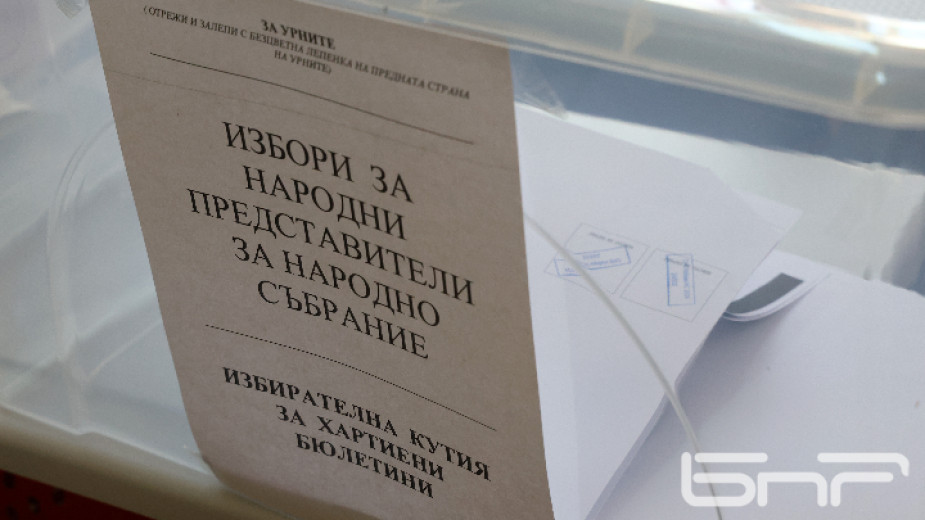Balmer (2013) reports on the massive criticism of the EU commission on the French Rroma policies. The reason for the complaint were the repeated statements by Interior Minister Manuel Valls, that the majority of the Rroma are not compatible with the French due to their specific lifestyle and should return to Romania. With these statements Valls drew the criticism of many of his Socialist party colleagues but at the same time also a lot of sympathy on the part of many French mayors who feel alone in confronting informal Rroma camps around Paris. In a statement, Viviane Reding, Vice-President of the European Commission, reminded Valls about the agreement of 2010, where France promised the compliance of freedom of travel and establishment for all EU citizens, including Rroma. France has a law that allows deportation of asylum seekers if they cannot raise enough money for their own livelihood.
Nunès (2013) gives an overview of the responses to Valls statements by various French mayors. Most, including socialist politicians, agree with Valls on his order and return policies. The reasoning is always similar: France is not responsible for solving the world’s problems. With their anarchical way of life, Rroma are not compatible with the French society and should be deported. They are a massive financial burden on the French welfare state, which is battered enough already by the economic crisis. For Clermont-Ferrand, they are primarily passive victims who can not be saved by the overstretched French government at this time and thus must be expelled. By the assignment of a victim role, Ferrand wants to distance himself from ethnic categorizations: “Il n’est pas question de stigmatiser une population, mais, dans une période de pénurie d’emplois et de logements, nous ne sommes pas en mesure de réussir leur intégration. Il faut mettre un terme à l’hémorragie rom en France” [One should not stigmatise a population, but at a time where there is a scarcity of jobs and housing, we are not in a position to achieve their integration. We have to stop the Rroma bleeding in France.]
Vallaud Najat Belkacem, Women’s Rights Minister, clarified the position of the French government in the national Rroma politics: The repatriation is part of a range of measures in dealing with Rroma. French Rroma policies are determined by assertiveness and humanity: assertivness in the sense that one prevents misery, which is no way to live, by the destruction of Rroma camps. Humanity, in the sense that one always promotes access to education, employment and housing where possible (Le Point, 2013). That these humanitarian interventions are permeated of political views and intentions is an important detail that is not discussed in more detail by Belkacem. Instead, evictions are declared to be humanitarian measures to protect residents who need to be saved from untold misery. That living in an illegal settlement could be an unpleasant but acceptable alternative to permanent expulsion practices for those affected is not considered.
Libération (2013) states that Valls sees his policies as the ones of leftist politician who takes the suffering and distress of French citizens seriously. That these are anti-socialist policies, which make a distrinct difference between the equality of people established in France, he negates completely: “Le ministre a répété que son action est «celle d’un homme de gauche». «J’ai le devoir (…) d’écouter l’exaspération, les colères, les souffrances de notre peuple», a-t-il argumenté” [The minister repeated that his action is “the one of a leftist”. “I have the duty (…) to listen to the exasperation, the anger, the sufferings of our people.] The Housing Minister, Cécile Duflot, criticised Valls violently stating that he continues to carry on Nicolas Sarkozy’s policies and set a highly questionable order policy based on ethnic origin.
In her analysis, Soullier (2013) also emphasizes the strong connection between French Rroma policies and the election campaign and its associated views of politicians. So Marie Le Pen continue to talk about a “horde” of Rroma who will come to France starting in January 2014, with the enactment of freedom of movement agreement with Bulgaria and Romania. Other MPs, such as Nathalie Kosciusko-Morizet, assign to Rroma criminal habits need to be prevented. Few politicians like Dominique Voynet recognise that the problem is cannot only be attributed to the Rroma of desire for integration, but is also the result of a lack of will on the part of government and society to accept them, “C’est difficile de reprocher aux personnes de ne pas s’intégrer quand on leur refuse le droit de travailler.” [It is difficult to reproach people not to integrate when one forbids them to work.]
Social geographer Olivier Legros know also point out that only visible Rroma living in camps are discussed by the media and politicians. The invisible, integrated Rroma are thereby condemned to non-existence, the general public does not even know they exists at all. The Rroma are a projection screen for the unwanted: “Dans le discours politique français, les Roms désignent des personnes qui habitent des bidonvilles aux marches des villes, qui viennent d’Europe centrale et qui menacent la sécurité des citoyens. Finalement, le Rom est une métaphore, un mot qui décrit des indésirables. Ceux qui se sont intégrés, on n’en parle jamais. […] Comment savoir, on ne parle jamais de ceux qui se sont intégrés? Il y en a peut-être dans votre bureau, dans votre entreprise mais ils n’éprouvent peut-être pas le besoin de le dire tous les jours.” (20 minutes France 2013) [In the French political discourse, Roma designate people who live in slums near urban centres, who came from Central Europe and threaten the safety of citizens. Finally, the Rom is a metaphor, a word that describes the undesirable. Those who are integrated, we never talk about. […] How do you know, we never speak of those who are integrated? They may be in your office, in your business, but they may not feel the need to say so every day]. According to Legros, the really questionable thing is that poverty is raised as a stigma and criminalised. It obscures the social conditions that are not the result of personal decisions and actions , but the result of structural, socially institutionalized and maintained inequalities.
Christian Vanneste of the extreme rightist RPF party (Les Obervateurs 2013), takes the debate as an opportunity to perform an alleged disclosure of the true problems. He pours into racist generalisations that he does not see as racist because they correspond to the real behaviour of the Rroma and are confirmed by statistics. Rright at the beginning of the article he states that there is a clear link between the presence of the Rroma and a rise in crime rates: “Il y a un rapport entre la présence dans plusieurs grandes agglomérations d’une concentration d’immigrés roumains et bulgares et la délinquance.” [There is a correlation between the presence in several large agglomerations of Romanian and Bulgarian immigrants and criminality.] He further dishes out the popular notion of networks of organised beggars, con artists and criminal children gangs, elevating the exploitation of Rroma by Rroma as a cultural trait. He also quantifies the damage caused metal theft done by Rroma at 800,000 euro. For Vanneste, it is clear that the debate about the Rroma is not about racism but about objectified facts. What he does, is racism with questionable statistics and a correlation of parameters that de facto have nothing to do with each other, because there is simply no such thing as “ethnic culture of delinquency”. The rest of the article consists of a tirade against the EU, which presumes to prescribe the “right” policy decisions to the French government.
Comment: Valls statements, which are culturising and generalising are once again a prime example of the massive politicization of the Rroma identity, which is presented to the outside world as natural and anti-political. It must be stressed once more that integration is a two way process. If Rroma access to education, employment and health care is denied, the integration is nearly impossible. Quite a few French politicians seem not to want to pursue such an integration, because they believe from the outset that Rroma cannot be integrated. Whether they have ever spoken with Rroma for a longer time is highly doubtful. The polemic shows how much policies are controlled by entrenched opinions: One wants well-educated, financially strong immigrants with high social integration capabilities. If they do not meet this ideal, ethnic characteristics are exploited to declare them not “to be integrated”. That this assignment steeped in political and moral views is usually ignored. Rather, this is presented as indisputable nature of the Rroma.
- 20 minutes France (2013) Roms: «L’intégration des Roms n’est pas facilitée par les expulsions» In: 20 minutes France online vom 26.9.2013. http://www.20minutes.fr/politique/1228199-20130926-roms-polemiques-politiques-jugees-chercheur
- Balmer, Rudolf (2013) Neue Polemik um Rroma in Frankreich. In: NZZ online vom 26.9.2013. http://www.nzz.ch/aktuell/international/auslandnachrichten/neue-polemik-um-die-roma-in-frankreich-1.18157325
- Libération (2013) Les propos de Valls sur les Roms menacent le pacte républicain, selon Duflot. In: La Libération online vom 26.9.2013. http://www.liberation.fr/politiques/2013/09/26/les-propos-de-valls-sur-les-roms-menacent-le-pacte-republicain-selon-duflot_934931
- Les Observateurs (2013) Remercier les Roms! In: Les Observateurs online vom 26.9.2013. http://www.lesobservateurs.ch/2013/09/26/les-roms/
- Le Point (2013) Manuel Valls sur les Roms: “Je n’ai rien à corriger”. In: Le Point online vom 25.9.2013. http://www.lepoint.fr/politique/manuel-valls-sur-les-roms-je-n-ai-rien-a-corriger-25-09-2013-1734849_20.php
- Nunès, Eric (2013) Des maires de grandes villes jugent impossible d’accueillir les Roms. In: Le Monde online vom 26.9.2013. http://www.lemonde.fr/societe/article/2013/09/26/des-maires-de-grandes-villes-jugent-impossible-d-accueillir-les-roms_3485636_3224.html
- Soullier, Lucie (2013) Roms: surenchère verbale et idées reçues avant les municipales. In: Le Monde online vom 24.9.2013. http://www.lemonde.fr/politique/article/2013/09/24/roms-surenchere-verbale-et-idees-recues_3483799_823448.html







